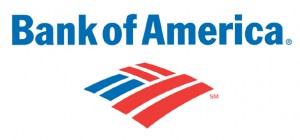One of the most recent efforts to bring the big banks to task over their role in the nation’s real estate crisis is a New York lawsuit, Abel v. BAC Home Loans Servicing LP et al, alleging international money laundering by Bank of America as well as other major federally chartered banks. The lawsuit alleges that Bank of America, JP Morgan Chase, Citibank, Citigroup, 1 West and Wells Fargo have been moving trillions of dollars into offshore accounts without properly disclosing those transactions on their balance sheets.
When a property forecloses and sells in a Trustee sale, the servicer of the loan takes its fees for servicing the foreclosure as well as other fees. The remaining funds from the sale are supposed to go to the new owner of the loan. Finally, the old debt is supposed to be discharged. However, the big banks are being accused of diverting that remaining money into off-shore accounts which earn interest. Meanwhile, they are NOT crediting the previous loan and discharging the debt.
In their defense, the banks claim that since they don’t know who the new investors are, they can’t pay them the money while conveniently earning interest off those investments. Ironically, that same argument has been used by struggling homeowners who want to mediate their loans to avoid foreclosure. In typical fashion, where the homeowner suffers, the banks profit.
Transferring money to offshore accounts is not illegal if done correctly. However, by not fully disclosing the transfers and failing to discharge the old debts, the banks may be in violation of money laundering statutes and the Patriot Act.
This case brings to the forefront yet another aspect of how sloppy paperwork and accounting has been a standard business practice of the big banks.
Tisha Black Chernine, Esq.


 Local news station, Channel 13 Action News, investigates Bank of America, the largest home mortgage lender in Nevada. Read the full story
Local news station, Channel 13 Action News, investigates Bank of America, the largest home mortgage lender in Nevada. Read the full story 
 Nevada Supreme Court Justice James W. Hardesty announced that more than 3,400 homeowners who received notices of default have requested mediation in the Nevada Foreclosure Mediation Program as they seek to hold on to their homes. Since the program first began on July 1, 2009, 372 mediations have been conducted and another 805 mediations have been scheduled. An additional 1,401 cases have been assigned to mediators, who are working to schedule and hold those mediations within 90 days of the notices of default being recorded. Justice Hardesty announced that the statistics are current as of November 16, 2009
Nevada Supreme Court Justice James W. Hardesty announced that more than 3,400 homeowners who received notices of default have requested mediation in the Nevada Foreclosure Mediation Program as they seek to hold on to their homes. Since the program first began on July 1, 2009, 372 mediations have been conducted and another 805 mediations have been scheduled. An additional 1,401 cases have been assigned to mediators, who are working to schedule and hold those mediations within 90 days of the notices of default being recorded. Justice Hardesty announced that the statistics are current as of November 16, 2009
